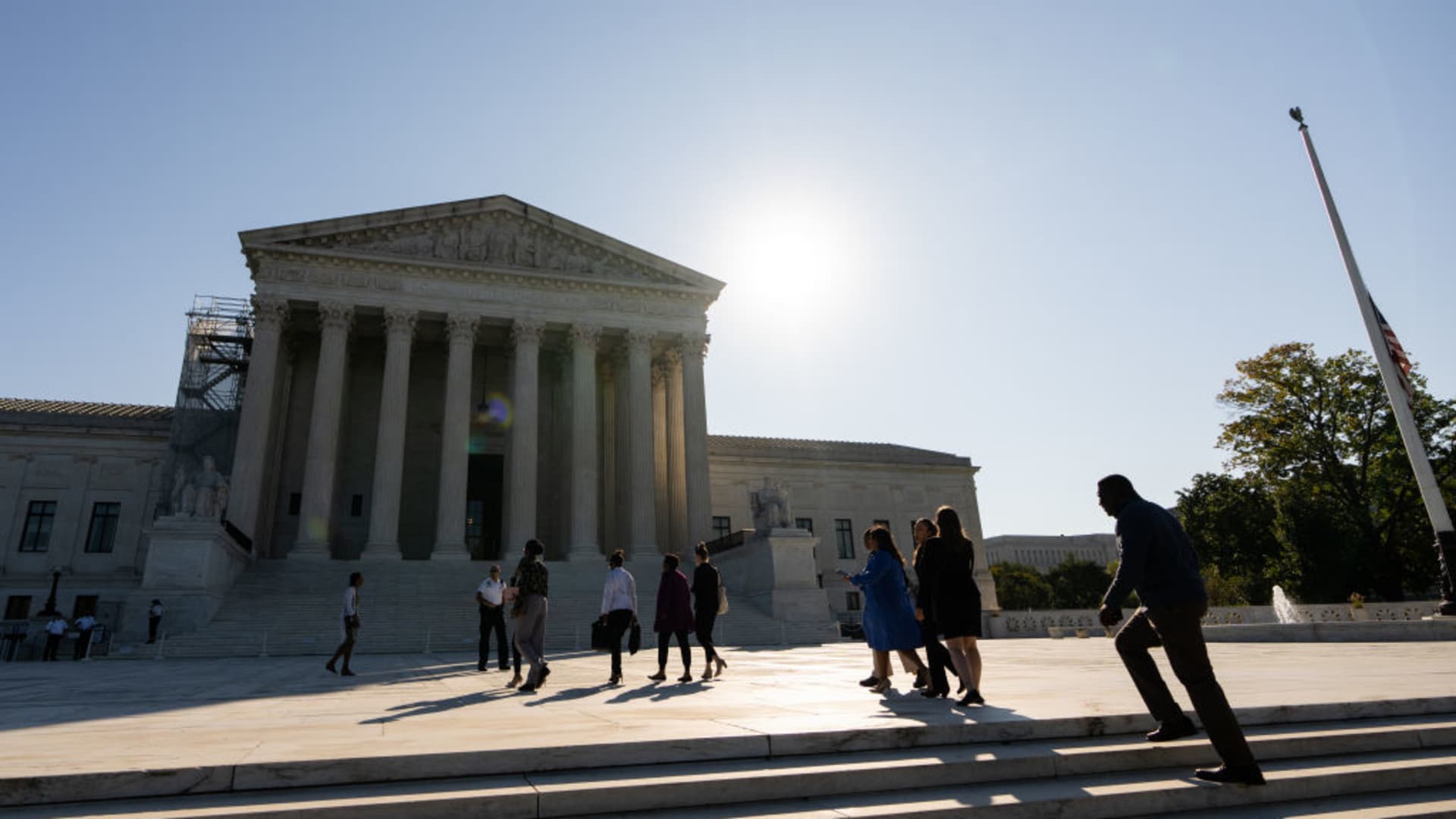Supreme Court Case with Potential to Gut Consumer Watchdog Agency
[Publication Date]
The Supreme Court is gearing up to hear oral arguments in a case that could have serious consequences for the Consumer Financial Protection Bureau (CFPB), an agency established in response to the 2008 financial crisis. The case, CFPB v. Community Financial Services Association of America, revolves around the constitutionality of the agency’s funding. If the high court rules in favor of the trade group representing payday lenders, it could potentially nullify any regulations issued by the CFPB in the past 12 years, impacting consumers and raising concerns about other similarly funded agencies.
[Consumer advocacy group], stated that “[The CFPB’s] future is on the line before the Court.” The ruling is expected to be delivered by June 2024.
Challenging the Constitutionality of the CFPB’s Funding
The CFPB was established in 2011 under the Dodd-Frank financial reform law, with the aim of safeguarding consumers against predatory financial practices. Since its inception, the agency has provided approximately $17.5 billion in financial relief to about 200 million eligible individuals.
Past legal battles have challenged the structure and operations of the CFPB. In a 2020 case, Seila Law v. CFPB, the Supreme Court found aspects of the agency to be unconstitutional but ultimately allowed it to continue functioning. In the current case, the CFSA trade group filed a lawsuit in 2018, seeking to invalidate a 2017 rule that imposed stricter regulations on payday lenders.
The case reached the U.S. Court of Appeals for the 5th Circuit, which ruled in October 2022 that the CFPB’s funding mechanism violated the Constitution’s appropriations clause. Unlike other government agencies, the CFPB does not rely on annual appropriations from Congress. Instead, it has an independent funding structure sourced through the Federal Reserve. The 5th Circuit declared this arrangement unconstitutional and deemed the payday rule illegal.
According to the Congressional Research Service, this ruling may be unprecedented, as it is the first known decision to conclude that congressional action can violate the Appropriations Clause.
The Potential Impact on the CFPB and Consumers
If the Supreme Court upholds the ruling against the CFPB, it could pose a significant threat to the agency’s existence. The agency may still technically exist but would be unable to utilize its funds, raising questions about how it would pay its employees and carry out its duties. This could severely limit the agency’s ability to enforce regulations and protect consumers.
Moreover, a ruling against the CFPB could cast doubt on the validity of its past and future rulemakings. This would include a wide range of regulatory actions, enforcement actions, examinations, and more conducted by the CFPB over the past 12 years. The real estate industry, in particular, could be devastated, potentially destabilizing the mortgage market.
It is worth noting that many other government agencies and programs operate outside of the annual appropriations process, relying on alternative funding mechanisms similar to the CFPB. These include the Federal Reserve, Federal Deposit Insurance Corp., Office of the Comptroller of the Currency, and various healthcare programs like Medicare and Medicaid. Legal experts and consumer advocates have expressed concerns about the potential ripple effects on these agencies if the ruling favors the CFSA trade group.
However, it is unlikely that the Supreme Court would completely dismantle the CFPB and invalidate all its past rulemakings. If the ruling is unfavorable, the court may grant Congress time to establish an alternative funding structure. This, of course, depends on the political landscape and Congress’s ability to reach a consensus.”We’ll know a lot more on Tuesday after we hear from the justices,” said John Coleman, partner at the law firm Orrick and former deputy general counsel for litigation at the CFPB.
Denial of responsibility! Vigour Times is an automatic aggregator of Global media. In each content, the hyperlink to the primary source is specified. All trademarks belong to their rightful owners, and all materials to their authors. For any complaint, please reach us at – [email protected]. We will take necessary action within 24 hours.


